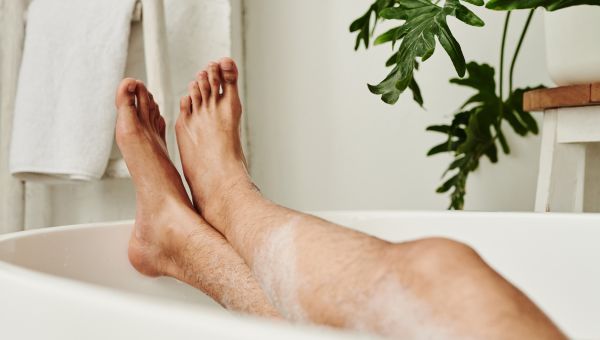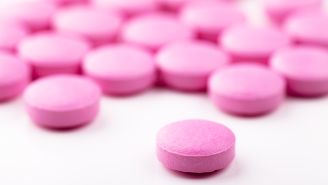Is masturbation healthy?
In fact, it's one of the best and easiest ways to get to know your body—and offers a range of health benefits.
Updated on January 11, 2023

Whether you're single or in a relationship, you shouldn’t shy away from self-pleasure. And that’s not just because it feels good.
Masturbation can provide a variety of health benefits, too. A little alone time may improve intimacy, help with falling asleep, and even lower the risk of prostate cancer.
What’s not to love? Here’s a rundown of why you may want to up your game, plus tips on how to do it.

It Can Help You Get To Know Your Body Better
There’s no better way to get familiar with your body than spending a little time alone. Masturbation can help you learn what feels good, how your body reacts to certain sensations, and how to ejaculate or reach orgasm.
When you learn what you like—and what you don’t—you’ll be better able to communicate with your partner when the time comes. You can share things like, “I really enjoy this position, but when I do things on my own, I find it’s more enjoyable this way.” Your partner should want sex to be pleasurable for you, so understanding your preferences will help you both enjoy the fireworks.

It Can Lower The Risk Of Prostate Cancer
Frequent ejaculation—either through masturbation or intercourse—was associated with a lower risk of prostate cancer in a 2016 study published in European Urology. Researchers found that cisgender men who ejaculated 21 times monthly reported fewer prostate cancer diagnoses compared to those who ejaculated between 4 and 7 times each month. A 2018 meta-analysis published in The Journal of Sexual Medicine found that ejaculating between 2 to 4 times per week was associated with a lower risk of prostate cancer.
While the research is not conclusive, it does suggest that regular ejaculation could improve prostate health.

It Can Help Improve Sleep
You’re not just imagining your partner’s head hitting the pillow immediately after being intimate—having sex can facilitate better sleep. And orgasm and ejaculation achieved through masturbation may have the same effect.
Why might you get so sleepy? Hormones play a big role. After you climax, your body releases both oxytocin and prolactin, which can help usher in sleep. Your levels of the stress hormone cortisol decrease, as well, which may help you relax for bedtime.

How To Get Started
Whether you’re new to masturbation or looking for ways to spice up your alone time, here are some strategies for self-pleasure:
Block out your schedule. Carve out some time to be intimate with yourself. Make sure you’ll be uninterrupted for a little while and pick a place that’s comfortable: the bed, the couch, the shower. Wherever you feel most relaxed is the ideal place for masturbation.
Fantasize. Achieving orgasm may come easier if you’re envisioning a sexy-to-you scenario. And you’re less likely to get distracted if you’re following a story line or scene. You might spend some time dreaming up plotlines where there is role-playing involved or a position you’ve always wanted to try. You can then conjure up that fantasy when you’re getting busy.
Experiment with new things. These days, there are all sorts of lubricants and toys to help you get in the mood and enhance sensation. But having so many options can be confusing. Before you make a purchase, think about what you want to get out of your toy: Do you typically orgasm with direct clitoral stimulation, penetrative stimulation, or both? Do you enjoy coming more when you’re wetter down there?
Remember, if visiting a sex shop seems intimidating, many lubes and sex toys are available for purchase online. If you’re buying toys, choose ones made of silicone. They’re easy to clean and safe for your body.

Have Fun And Connect With Your Body
The beauty of masturbation is that it’s just between you and your body. In addition to the health benefits, you don’t have to worry about how long it takes, or whether or not someone else is feeling pleasure, too.
So, enjoy the moment and take the opportunity get in touch with your body—literally.

SutterHealth.org. Benefits of Masturbation. 2021. Accessed June 4, 2021.
J Rider, K Wilson, et al. Ejaculation Frequency and Risk of Prostate Cancer: Updated Results with an Additional Decade of Follow-up. European Urology. December 2016. 70(6):974-982.
Sleep.org. Is Sex Helping or Hurting Your Sleep? 2021. Accessed June 4, 2021.
Jian Z, Ye D, Chen Y, Li H, Wang K. Sexual Activity and Risk of Prostate Cancer: A Dose-Response Meta-Analysis. J Sex Med. 2018;15(9):1300-1309.
More On


video

article

slideshow


video


video
